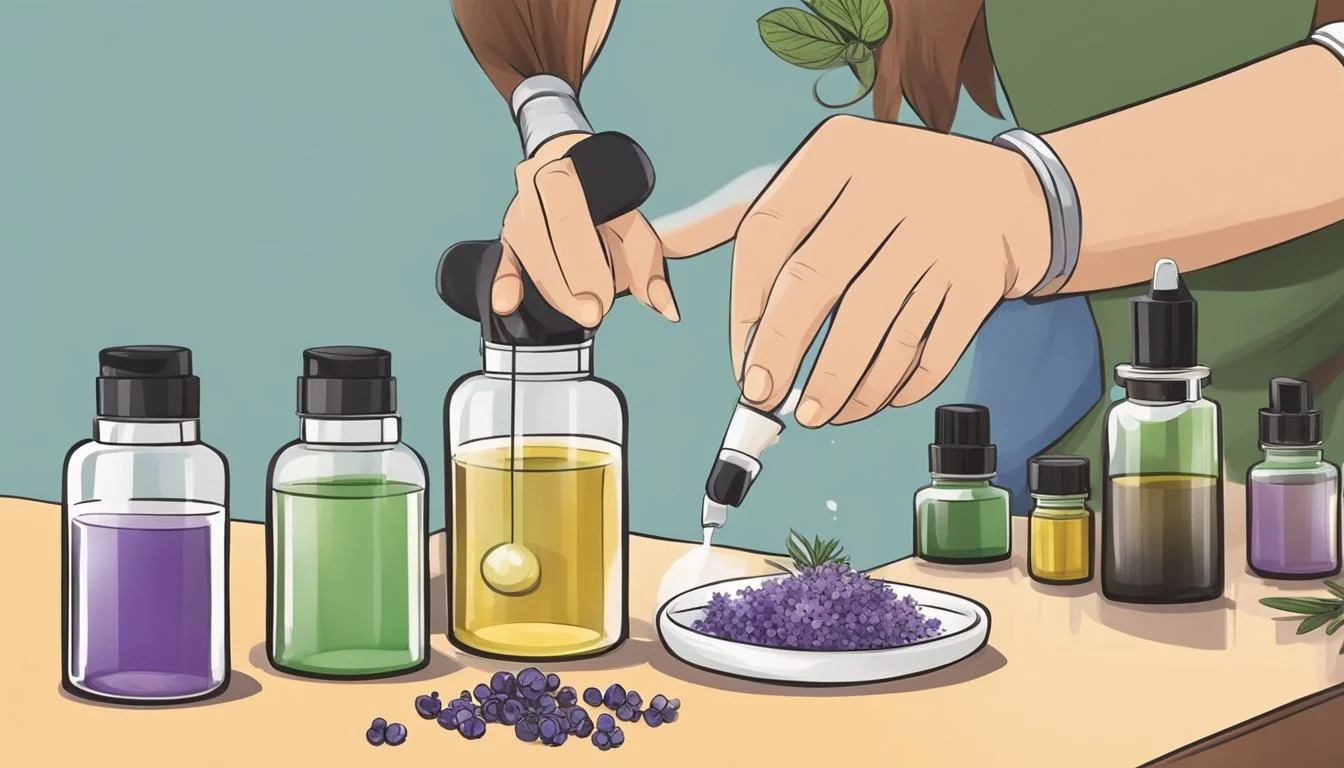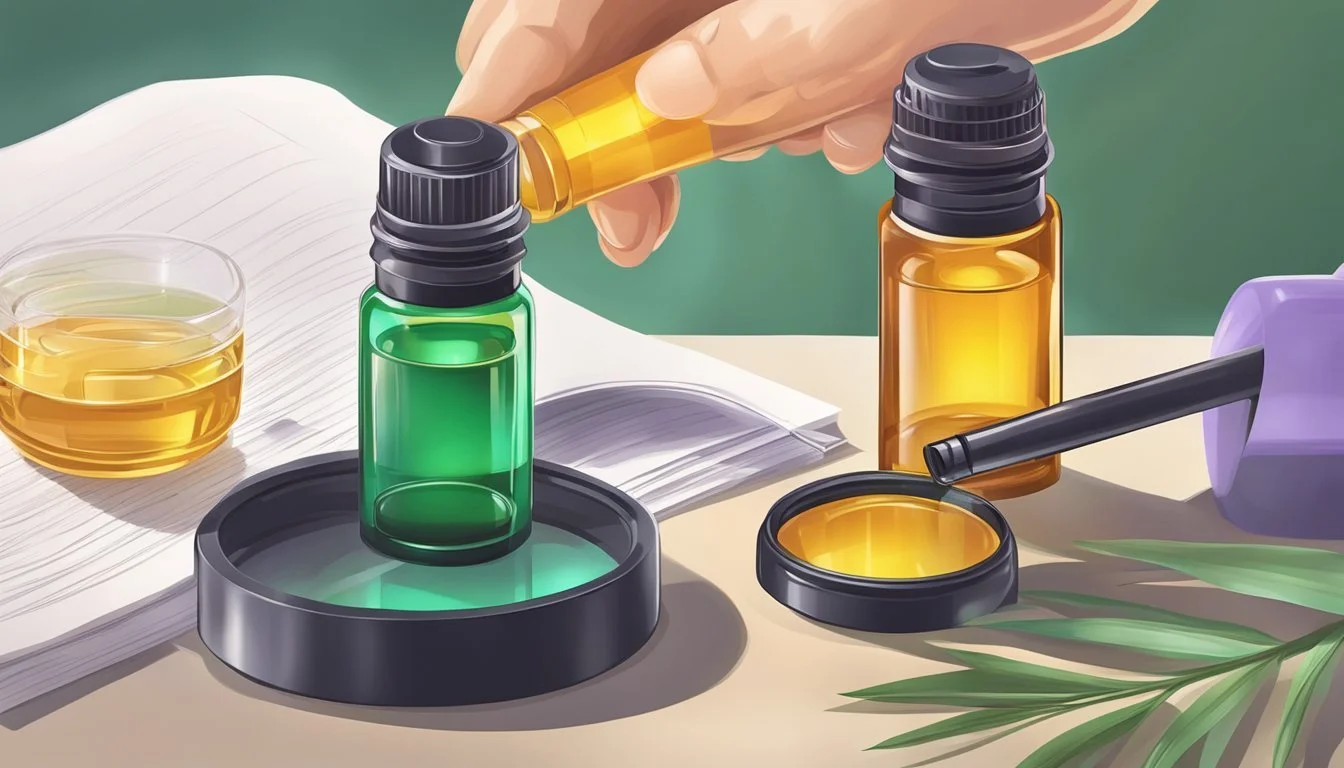Aromatherapy Blends for Managing Self-Centered Behaviors
Narcissist essential oil captivates the senses with its complex blend of warm, woodsy notes and subtle floral undertones. This seductive fragrance combines patchouli, sandalwood, and Egyptian musk to create a bold and alluring scent. Narcissist fragrance oil can be used to make perfumes, soaps, candles, and other scented products.
The fragrance opens with spicy cinnamon top notes before revealing heart notes of earthy patchouli and Egyptian musk. As it dries down, base notes of orange blossom emerge to round out the scent profile. This well-balanced combination of spices, florals, and musk creates an aroma that is both confident and captivating.
While often compared to designer fragrances, narcissist essential oil offers a more affordable option for those seeking a premium scent. Its versatility makes it suitable for a variety of applications beyond personal fragrance, including room sprays and home fragrance products. The oil's Maximum Use Level for skin exposure ensures safe use in body care formulations.
Understanding Narcissist Essential Oil
Narcissist essential oil is a complex fragrance blend designed to captivate the senses. This aromatic composition combines various notes to create a seductive and alluring scent.
Defining the Seductive Blend
Narcissist fragrance oil is characterized by its warm, woodsy base complemented by floral and spicy accents. The scent aims to evoke confidence and allure.
Top notes often include spicy cinnamon, providing an initial burst of warmth. Middle notes may feature earthy patchouli and Egyptian musk, adding depth and complexity.
Base notes typically consist of patchouli, sandalwood, and Egyptian musk. These long-lasting elements form the foundation of the fragrance, lingering on the skin.
Orange blossom adds a subtle sweetness, while hints of anise contribute a unique twist to the overall composition.
Components of Narcissist Fragrance Oil
Narcissist fragrance oil combines several key ingredients to achieve its distinctive aroma. Each component plays a specific role in the scent profile.
Essential oils form the core of the blend. Citrus oils like bergamot or lemon may be included for brightness. Floral notes often come from jasmine or rose extracts.
Woodsy elements are crucial, with cedarwood and sandalwood providing a masculine edge. Spicy notes like cardamom or black pepper add complexity and intrigue.
Carrier oils are used to dilute and blend the essential oils. These neutral bases help distribute the fragrance evenly and ensure proper concentration.
Synthetic fragrances may also be incorporated to enhance certain aspects of the scent or improve its longevity on the skin.
The Role of Narcissist Fragrance in Products
Narcissist fragrance oil finds applications in various personal care and home products. Its versatility makes it popular for creating a range of scented items.
In personal care, the oil is used in soaps, lotions, and shampoos. These products allow users to carry the scent throughout their daily routines.
Home fragrance items like candles, room sprays, and diffusers feature the narcissist scent. These products help create an inviting atmosphere in living spaces.
Laundry detergents and fabric softeners may incorporate the fragrance, infusing clothes with a subtle yet alluring aroma.
Potpourri and sachets scented with narcissist oil offer a way to add fragrance to drawers, closets, and other small spaces.
Crafting Personal and Home Care Items
Narcissist fragrance oil offers versatility for creating various personal and home care products. Its unique scent profile lends itself well to candles, soaps, lotions, and custom home fragrances.
Candle Making with Narcissist Fragrance
Narcissist fragrance oil works excellently in candle making. For optimal scent throw, use 6-10% fragrance oil per pound of wax. Soy and paraffin waxes both perform well with this scent.
Melt the wax to 185°F (85°C) before adding the fragrance oil. Stir gently for 2 minutes to ensure even distribution. Pour into containers at 135°F (57°C) for best results.
Test burn candles to evaluate scent strength and throw. Adjust usage levels if needed, but stay within safe limits to prevent performance issues.
Soap Making Techniques
Narcissist fragrance oil is suitable for both cold process and melt-and-pour soap making methods. For cold process, use 3-5% of oil weight. Add at light trace to minimize acceleration.
In melt-and-pour soap, use 2-3% fragrance oil by weight of soap base. Melt the base, add fragrance, and stir thoroughly before pouring into molds.
Always test small batches first to check for any adverse reactions or discoloration. Adjust usage levels as needed while staying within skin-safe limits.
Incorporating Fragrance Oils in Lotions and Shampoos
Add Narcissist fragrance oil to lotions and shampoos at 1-2% of the total product weight. Mix thoroughly to ensure even distribution throughout the base.
For lotions, add the fragrance oil during the cool-down phase when the temperature is below 104°F (40°C). This helps preserve the scent integrity.
In shampoos, incorporate the fragrance oil after all other ingredients have been mixed. Stir gently to avoid creating excess foam.
Always perform patch tests to ensure skin compatibility before full application.
Creating a Custom Fragrance for Home
Blend Narcissist fragrance oil with complementary scents to create unique home fragrances. Combine with citrus or floral notes for a lighter aroma, or woody scents for depth.
For reed diffusers, mix 20-30% fragrance oil with a carrier like DPG or alcohol. Place reeds in the mixture and flip every few days to refresh the scent.
Create a room spray by adding 10-15 drops of fragrance oil per ounce of distilled water and a small amount of solubilizer. Shake well before each use.
Use in wax melts or oil burners for concentrated scent dispersion. Start with small amounts and adjust based on personal preference.
Safety and Compliance
Proper handling and usage of narcissist fragrance oil requires adherence to safety standards and regulatory compliance. Key considerations include IFRA guidelines, phthalate and Prop 65 compliance, and flashpoint awareness.
Understanding IFRA Standards
The International Fragrance Association (IFRA) sets safety standards for fragrance ingredients. IFRA certificates provide usage guidelines for narcissist fragrance oil in different product categories. These recommendations ensure safe concentration levels.
Manufacturers should obtain and follow the IFRA certificate for narcissist oil. Usage rates vary based on product type, from low levels in lip products to higher allowances in perfumes. Compliance protects consumers from potential skin irritation or sensitization.
Phthalate and Prop 65 Compliance
Many narcissist fragrance oils are formulated to be phthalate-free and Prop 65 compliant. Phthalates are plasticizers that can act as endocrine disruptors. Prop 65 is a California law requiring warnings for chemicals linked to cancer or reproductive harm.
Reputable suppliers provide documentation on phthalate content and Prop 65 status. Manufacturers should verify this information to ensure regulatory compliance. Using phthalate-free and Prop 65 compliant oils can broaden market access and appeal to health-conscious consumers.
Fragrance Oil Flashpoints
Flashpoint refers to the lowest temperature at which vapors ignite. Narcissist fragrance oil typically has a flashpoint above 170°F (76.7°C), classifying it as a Class IIIA combustible liquid.
Proper storage and handling based on flashpoint is crucial for safety:
Keep away from heat and ignition sources
Use in well-ventilated areas
Follow shipping regulations for combustible liquids
Manufacturers should obtain the specific flashpoint for their narcissist oil and incorporate appropriate safety measures in production and storage processes.
Enhancing Fragrance Profiles
Crafting a captivating narcissist essential oil blend requires careful selection and combination of scents. The right mix can elevate the fragrance profile, creating a unique and alluring aroma.
Selecting Complementary Scents
When enhancing the fragrance profile of narcissist essential oil, start with a strong base note like Egyptian musk. This provides a warm, sensual foundation. Add depth with woody notes such as sandalwood or patchouli.
For middle notes, consider floral scents like osmanthus or orange blossom. These add a touch of elegance and complexity to the blend.
Top notes bring brightness and initial impact. Citrus oils like bergamot or lemon work well. Spicy notes such as cinnamon or anise can add intrigue and warmth.
Fruity accents like peach or raspberry can introduce a subtle sweetness. Use these sparingly to avoid overpowering other notes.
Experiment with different ratios to find the perfect balance. A typical blend might include:
30% base notes
50% middle notes
20% top notes
Test small batches before committing to larger quantities. Allow blends to mature for 24-48 hours before evaluating the final scent.
Considerations for Custom Fragrance Creations
Creating custom fragrances requires careful attention to both technical and legal aspects. Vanillin content and trademark considerations play crucial roles in developing unique scents.
The Impact of Vanillin Content on Color and Discoloration
Vanillin, a key component in many fragrances, can significantly affect a product's color and stability. Higher vanillin content often leads to darker initial colors and increased discoloration over time. This is particularly noticeable in soap and candle making.
Fragrance creators must balance the desired scent profile with color stability requirements. Lower vanillin formulations tend to produce lighter-colored end products with reduced discoloration. However, this may impact the fragrance's depth and longevity.
Testing different vanillin levels helps determine the optimal balance between scent and appearance. Some fragrance suppliers offer low-vanillin or vanillin-free alternatives to mitigate color issues.
Creating Trademark Scents and Navigating Trademarks
Developing a unique fragrance identity often involves creating trademark scents. These signature fragrances can become valuable assets for brands. However, navigating trademark laws for scents presents challenges.
Trademark protection for fragrances is complex. While product names and trade names can be trademarked, scents themselves are rarely granted legal protection. This is due to the difficulty in precisely describing and differentiating fragrances.
Brands must focus on protecting their fragrance's name and packaging instead. Distinctive product names and trade names help establish brand identity. Unique packaging designs can also enhance brand recognition and provide additional trademark protection.
Consulting with intellectual property lawyers helps ensure compliance with trademark regulations. This protects custom fragrances from potential infringement issues.
Making an Informed Purchase
When buying narcissist essential oil, it's crucial to consider supplier reputation and pricing structures. These factors significantly impact the quality and value of your purchase.
Assessing Supplier Reputation
Look for established suppliers with positive customer reviews. FragranceBuddy and Etsy offer platforms where you can find reputable sellers of narcissist essential oil.
Check for detailed product descriptions and ingredient lists. Reliable suppliers provide transparent information about their products.
Consider the supplier's customer service responsiveness. Quick and helpful responses to inquiries indicate a trustworthy seller.
Examine the return policy and shipping options. Reputable suppliers often offer reasonable return periods and reliable shipping methods like UPS.
Understanding Pricing and Orders
Compare prices across different suppliers to ensure you're getting a fair deal. Be wary of prices that seem too good to be true, as they may indicate lower quality products.
Look for bulk order discounts if you plan to purchase larger quantities. Many suppliers offer reduced prices for bigger orders.
Check for any additional fees such as shipping costs or handling charges. These can significantly affect the total price of your purchase.
Consider the concentration and purity of the oil when evaluating prices. Higher-quality, more concentrated oils may justify a higher price point.
Ecological and Ethical Considerations
Essential oils derived from narcissus flowers raise important ecological and ethical questions. Their production impacts plant populations and habitats, while manufacturing processes have environmental consequences.
Vegan and Cruelty-Free Options
Many narcissus essential oil products are vegan and cruelty-free. Reputable companies avoid animal testing and use plant-based ingredients exclusively. However, consumers should verify claims, as some producers may use animal-derived fixatives or engage in unethical practices.
Eco-friendly options are available from brands prioritizing sustainability. These companies use organic farming methods, minimize waste, and employ energy-efficient extraction techniques. Some utilize recycled packaging to further reduce their environmental footprint.
Ethical sourcing is crucial for narcissus essential oils. Responsible producers work with local communities to ensure fair labor practices and sustainable harvesting. This approach helps preserve wild narcissus populations and supports biodiversity.
Certifications like USDA Organic, Leaping Bunny, and Fair Trade can guide consumers toward more ethical choices. These labels indicate compliance with specific standards for environmental protection, animal welfare, and social responsibility.







